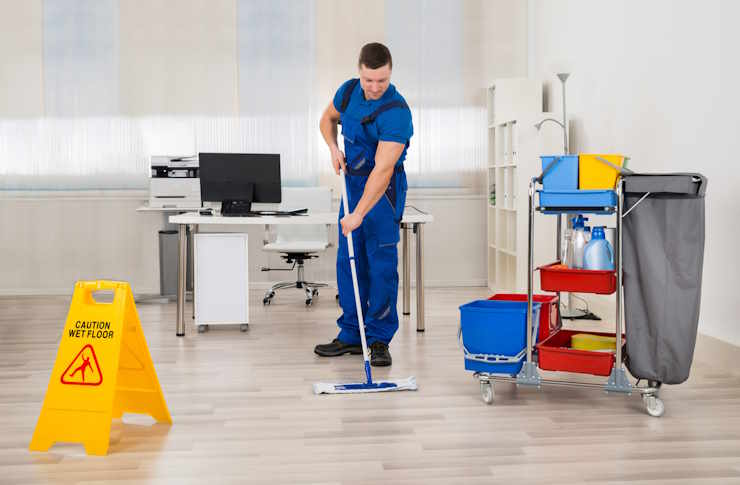School Cleaning Jobs: Opportunities, Requirements, and Career Outlook
Working in school cleaning means ensuring a clean, safe, and welcoming environment for students. Tasks include dusting, sweeping, sanitizing, and maintaining hygiene standards so that children and teachers can focus on learning in a healthy atmosphere.

Types of School Cleaning Staff Jobs
School cleaning positions encompass a variety of roles with different responsibilities and schedules. Custodial staff may work as day porters who handle immediate cleaning needs during school hours, evening cleaners who perform more thorough cleaning after students depart, or specialized cleaners who focus on specific areas such as gymnasiums, cafeterias, or science laboratories. Many school districts also employ seasonal deep-cleaning teams who work during summer breaks and holidays to perform intensive maintenance tasks. Additionally, larger educational institutions may have custodial supervisor positions that oversee cleaning operations and manage staff schedules. These diverse positions accommodate different skill levels and availability, making the field accessible to those seeking full-time careers or supplemental employment.
Qualifications and Skills for School Cleaning Positions
Most entry-level school cleaning positions require minimal formal education, typically a high school diploma or equivalent. However, supervisory roles often demand additional experience or certifications. Beyond educational requirements, successful school cleaning staff possess several important skills, including physical stamina, attention to detail, time management abilities, and basic knowledge of cleaning chemicals and equipment. Familiarity with health and safety regulations, particularly those related to educational environments, is increasingly important. Many school districts now prefer candidates with experience using eco-friendly cleaning products and methods. Background checks are mandatory for all school employees, including cleaning staff, as they work in environments with minors. Some positions may require specialized training in areas such as hazardous material handling, floor care, or industrial cleaning equipment operation.
How to Apply for Cleaning Jobs in Schools
The application process for school cleaning positions typically begins with identifying available opportunities through school district websites, education job boards, or local government employment portals. When searching for cleaning staff jobs in your area, consider checking with both public and private educational institutions, as they may have different hiring procedures and requirements. Most applications can be submitted online, though some districts still accept paper applications at administrative offices. A complete application generally includes a resume highlighting relevant experience, a cover letter expressing interest in the position, and professional references. Applicants should emphasize any previous cleaning experience, particularly in institutional settings. The hiring process usually involves an interview, background screening, and possibly a skills demonstration. Many school districts maintain ongoing applications for substitute custodial positions, which can serve as stepping stones to permanent employment.
Compensation and Benefits for School Custodial Staff
School cleaning positions typically offer stable compensation packages that vary based on location, experience, and specific responsibilities. Most public school custodial staff receive hourly wages, with full-time positions often including comprehensive benefits packages. The salary range for school custodians typically falls between $25,000 and $45,000 annually depending on the region, district size, and experience level. Positions in larger urban districts or private institutions may offer higher compensation. Beyond base pay, school cleaning jobs frequently provide benefits not always available in other cleaning sectors, including health insurance, retirement plans, paid vacation, and sick leave. Additionally, the predictable academic calendar often allows for consistent scheduling, with opportunities for overtime during school breaks for deep cleaning projects.
Career Advancement Opportunities
The school cleaning profession offers several pathways for career advancement. Entry-level custodians can progress to lead custodian or supervisor roles with increased responsibility and compensation. With additional training and certification, staff may specialize in areas such as HVAC maintenance, grounds keeping, or building security. Some custodial professionals transition to facilities management positions overseeing entire school buildings or campuses. Educational institutions also frequently support professional development through training programs and tuition assistance. Many experienced custodians find opportunities to advance into district-wide supervisory or administrative positions in facilities departments. The skills acquired in school cleaning roles—including building maintenance knowledge, team coordination, and environmental safety practices—are transferable to positions in healthcare facilities, commercial buildings, and government institutions, expanding the potential career trajectory.
Job Outlook and Stability in School Cleaning
The employment outlook for school cleaning professionals remains consistently stable, as educational facilities require ongoing maintenance regardless of economic conditions. According to labor statistics, janitorial and custodial positions, including those in educational settings, are projected to maintain steady demand in the coming decade. Contributing factors include continued construction of new school facilities, increased emphasis on proper sanitation following the COVID-19 pandemic, and regular staff turnover. Technology advancements are changing some aspects of the profession, with more efficient cleaning equipment and scheduling software becoming standard. However, the hands-on nature of school cleaning work means that automation poses minimal threat to overall job security. The profession’s stability makes it particularly valuable during economic downturns when other industries may experience significant job losses.
Challenges and Rewards of School Custodial Work
School cleaning positions present both unique challenges and meaningful rewards. The work can be physically demanding and sometimes requires handling unpleasant tasks such as cleaning bathrooms or managing waste disposal. Custodians must adapt to varying schedules, including possible evening shifts, weekend work, or early morning hours. However, many school cleaning professionals report significant job satisfaction derived from their essential role in educational communities. Building relationships with students, teachers, and administrators provides a sense of belonging often absent in other cleaning sectors. Contributing to safe, healthy learning environments offers tangible purpose to the work. Additionally, the academic calendar typically provides predictable scheduling and designated breaks that align with school vacations, creating a work-life balance that appeals to many professionals in the field.




